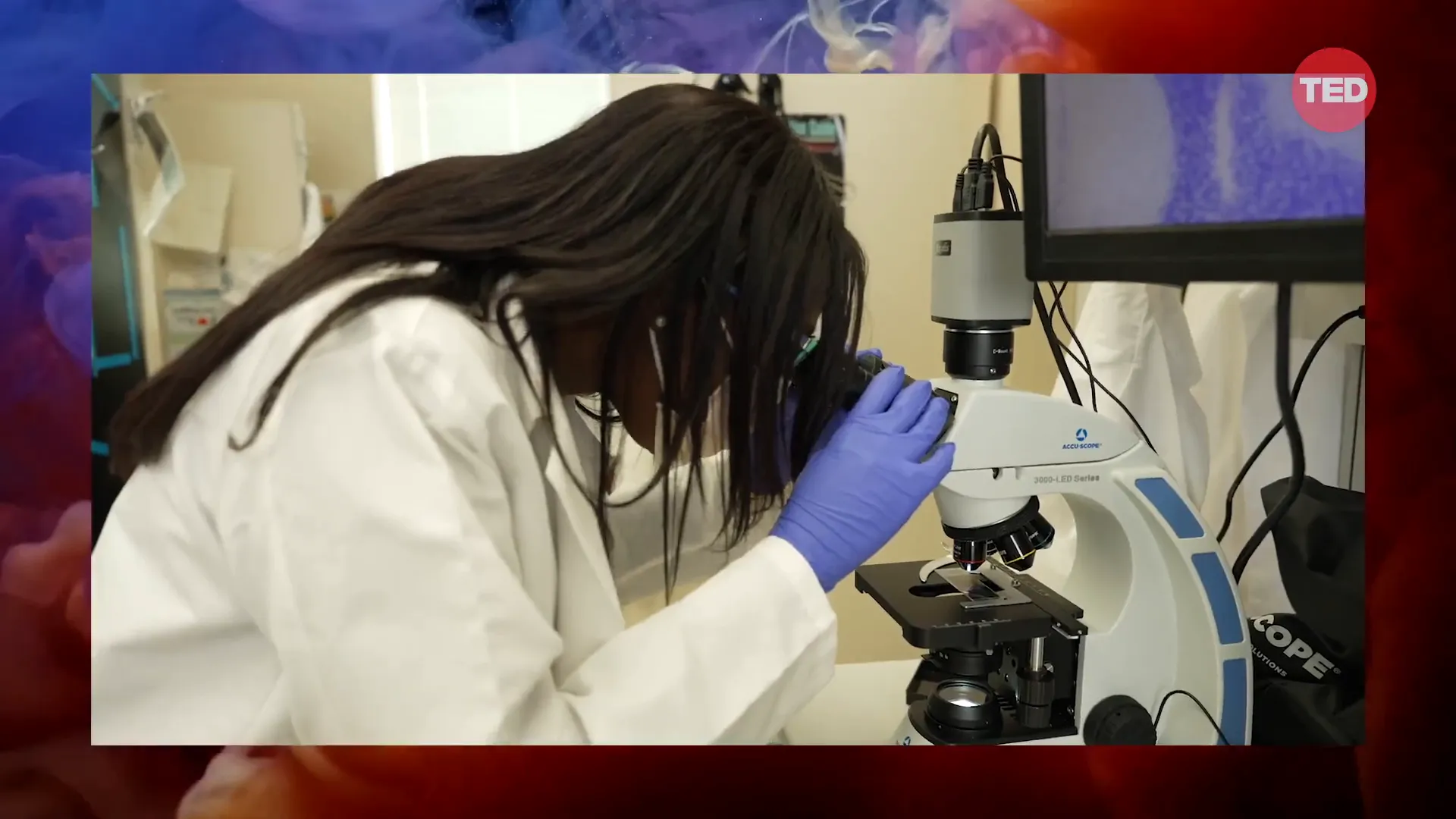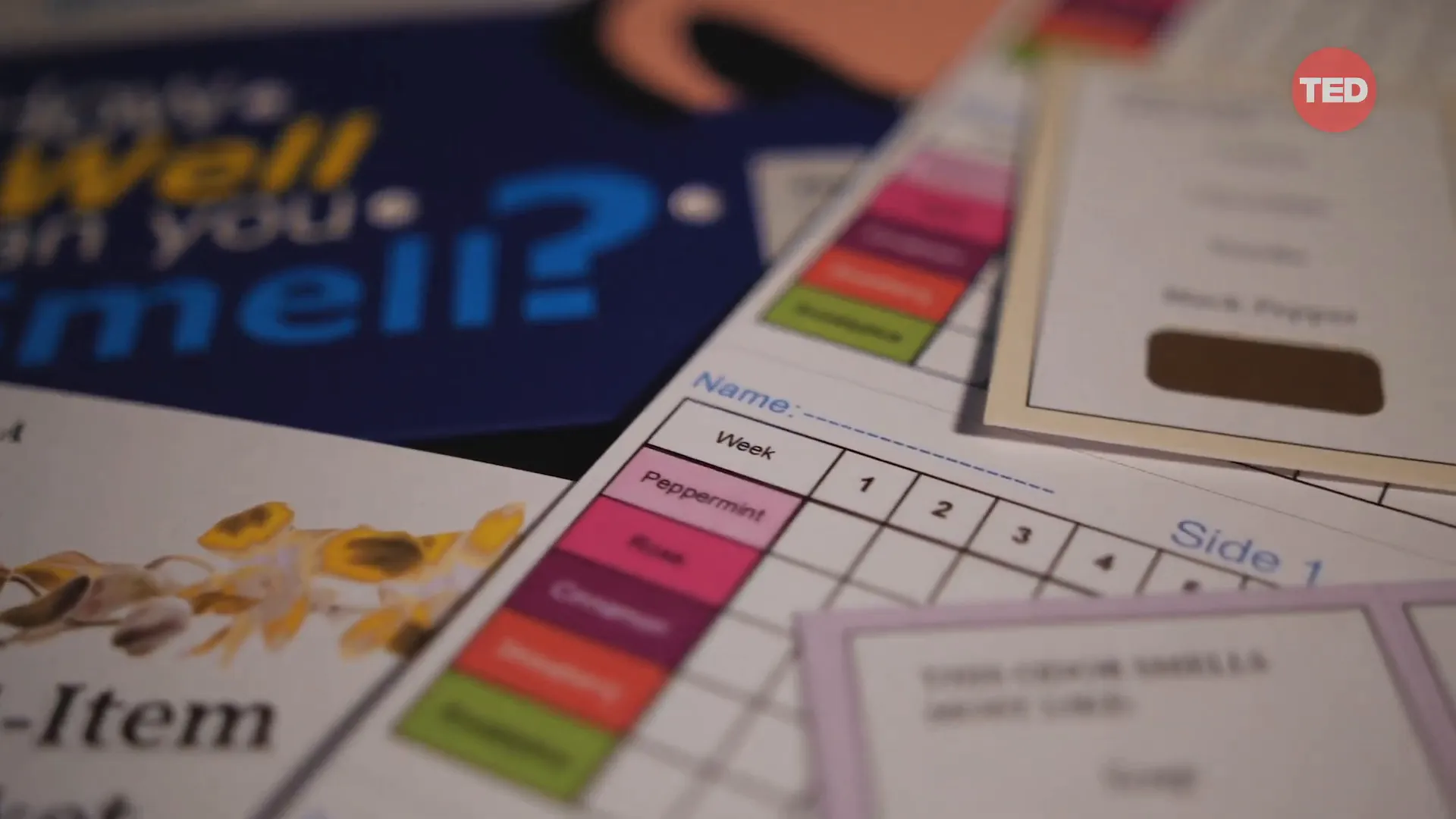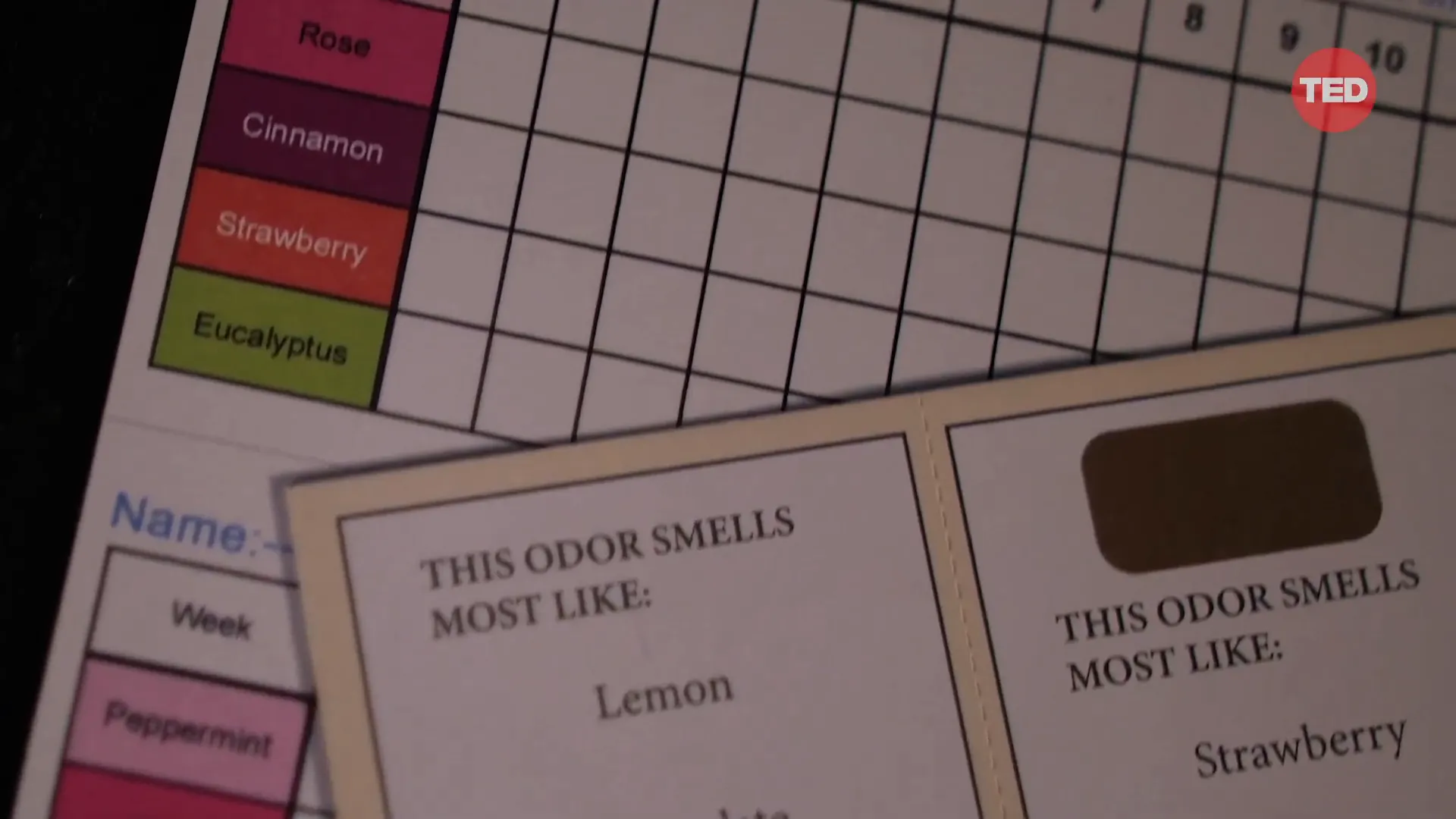May 20, 2025
Unlocking the Hidden Power of Smell: Why It Matters More Than You Think
In a world where sight and sound often steal the spotlight, the sense of smell remains an underappreciated hero. Join me, Paule Joseph, as we explore the profound impact of smell on our emotions, memories, and even our health. Discover how this powerful sense can be a key player in early disease detection and overall well-being.
The Nostalgia of Smell
Smell has a remarkable ability to evoke memories and transport us back to moments in our lives. Think about the scent of rain on hot pavement; it can instantly remind you of childhood days spent playing outside. Each aroma can be a portal to a different time and place. For many, the smell of chlorine may conjure up memories of summer pool days with family. The scent of crayons might take you back to kindergarten, where creativity blossomed amidst the aroma of wax and paper.
These olfactory memories can be powerful. The smell of fresh baked bread can remind us of home, of family gatherings, and the warmth of loved ones. Each scent carries with it an emotional weight, connecting us to our past and shaping our present. It’s fascinating how something as simple as a smell can unlock a flood of nostalgia.
The Science Behind Smell
At its core, the science of smell is known as chemosensory science. Our olfactory system is unique; it is the only sense that is directly linked to the limbic system in our brain. This part of the brain is responsible for emotions and memory, which explains why certain smells can elicit strong emotional responses. When we inhale an aroma, it travels through the nasal cavity and binds to olfactory receptors, sending signals directly to the brain.
This direct connection means that smells can influence our mood and even our behavior. For instance, pleasant scents can promote relaxation and happiness, while unpleasant ones can trigger feelings of disgust or discomfort. Understanding this connection can help us harness the power of smell in our everyday lives, be it through aromatherapy or simply choosing to surround ourselves with pleasant scents.

The Emotional Connection
Emotions are deeply intertwined with our sense of smell. The fragrances we encounter can enhance our feelings or even alter our mood. For instance, the aroma of lavender is known for its calming properties, making it a popular choice for relaxation. On the other hand, the scent of citrus can invigorate us, boosting our energy and alertness.
Moreover, scents can also trigger emotional memories. A whiff of freshly cut grass might remind you of summer afternoons spent playing outside, while the smell of a loved one's perfume could evoke feelings of comfort and nostalgia. This emotional connection to smell is a powerful tool that we can utilize in various aspects of our lives, from creating a welcoming home environment to enhancing our well-being.

The Common Misconception
Despite its significance, many people underestimate the importance of smell. If asked which of the five senses they would be willing to give up, most would choose smell. This is a common misconception. Smell plays a crucial role in our lives, serving as an early warning system for danger, such as spoiled food or gas leaks.
Moreover, the decline of smell can often go unnoticed until it becomes a significant issue. For instance, many individuals experiencing health conditions may not realize that their sense of smell is diminishing until it affects their quality of life. This lack of awareness can lead to missed opportunities for early diagnosis of diseases. Understanding the importance of smell is essential for both personal health and overall well-being.
The Primal Sense We Ignore
Smell is a primal sense, one that has been critical for survival throughout human history. It helps us detect food, recognize danger, and even identify potential mates. However, in modern society, we often overlook its significance. Many people do not consider how smell impacts their daily lives or overall health.
Working as a nurse, I witnessed firsthand how crucial smell can be in identifying infections or decay. The ability to smell is not just about enjoyment; it can be a matter of life and death. Ignoring this sense can lead to dire consequences, especially when it comes to recognizing health issues early on. By acknowledging and valuing our sense of smell, we can improve our health and quality of life.

Aging and Smell
As we age, our sense of smell naturally begins to decline. This decrease can be accelerated by various factors, including health conditions such as neurodegenerative diseases. Studies show that the sense of smell often diminishes long before other symptoms of diseases like Alzheimer's or Parkinson's emerge.
This decline in olfactory function is not just a nuisance; it can significantly impact an individual's quality of life. A reduced sense of smell can affect appetite, safety, and even emotional well-being. It’s crucial to recognize these changes and seek medical advice when they occur. Testing for smell can provide valuable insights into one’s health, potentially leading to earlier interventions and better outcomes.

Neurodegenerative Diseases and Smell
The connection between neurodegenerative diseases and our sense of smell is profound yet often overlooked. Research shows that a decline in olfactory function can be one of the earliest indicators of conditions like Alzheimer's and Parkinson's disease. In fact, individuals can experience a decrease in their sense of smell up to ten years before other symptoms appear.
As a chemosensory scientist, I have witnessed firsthand how critical it is to monitor this sense. The science behind this is tied to the brain's limbic system, which governs emotions and memories. The loss of smell can signal that something is amiss long before cognitive or motor symptoms manifest. This underscores the need for heightened awareness and research into olfactory dysfunction as an early warning system for neurodegenerative diseases.

Moreover, the lack of standardized testing for smell means that many individuals remain unaware of their declining olfactory function. While we routinely test vision and hearing, smell testing remains largely absent in clinical settings. By prioritizing smell assessments, we can glean valuable insights into an individual's health, potentially leading to earlier interventions and better management of neurodegenerative conditions.
The Case of My Mother-in-Law
My mother-in-law, an incredible chef, became a poignant example of how smell loss can signal deeper health issues. A few years ago, we noticed that her cooking, which was always flavorful, had become excessively salty. This change raised red flags for me. I decided to test her sense of smell, which revealed a significant decrease.
This led us to seek medical attention, where doctors could evaluate her other symptoms. Ultimately, she was diagnosed with frontotemporal lobe dementia. What struck me was the fact that none of her previous healthcare providers had tested her sense of smell despite her symptoms. This experience highlighted the critical need for early smell testing in clinical practice.

If clinicians had prioritized smell assessments, we might have caught her condition much earlier. Early detection could have opened doors for interventions that could improve her quality of life. It's a reminder of how our senses, particularly smell, can serve as crucial indicators of our health.
The Need for Early Testing
Early testing for smell is not just a luxury; it’s a necessity. As we’ve seen, the decline in olfactory function can be a precursor to serious health conditions. Implementing routine smell assessments could provide a critical window for early diagnosis and treatment.
Imagine a world where smell tests are as routine as blood pressure checks during physical exams. By incorporating olfactory testing into regular health screenings, we could identify individuals at risk for neurodegenerative diseases much earlier. This proactive approach could lead to timely interventions, improving outcomes and potentially slowing disease progression.

Moreover, the COVID-19 pandemic has underscored the importance of monitoring our sense of smell. With millions experiencing sudden loss of taste and smell, it’s clear that olfactory dysfunction can provide critical insights into viral infections and their long-term effects. As we move forward, it’s vital that we embrace the importance of smell testing in our healthcare systems.
COVID-19 and Smell Loss
The COVID-19 pandemic brought the significance of smell to the forefront of public consciousness. As millions began losing their sense of smell, it became evident that this symptom was not just a minor inconvenience but a potential indicator of a more serious health issue.
In contrast to typical viral infections, where smell loss is temporary, many COVID-19 patients experienced prolonged olfactory dysfunction. This raises concerns about the long-term implications for those who lost their sense of smell. For researchers like myself, this phenomenon warrants further investigation into the connection between COVID-19 and increased risks of neurodegenerative diseases.

The connection between smell loss and brain health cannot be ignored. Understanding the potential long-term effects of COVID-19 on our sense of smell could reshape how we view olfactory health in the context of overall well-being. We must prioritize research in this area to better understand the implications for those who have experienced smell loss during the pandemic.
The Future Risks of Smell Loss
As we look to the future, the risks associated with smell loss extend beyond immediate health concerns. The potential link between olfactory dysfunction and neurodegenerative diseases poses a significant public health challenge. With an aging population, the prevalence of conditions like Alzheimer's and Parkinson's disease is expected to rise.
The reality is that many individuals may not realize their sense of smell is declining until it’s too late. This lack of awareness can lead to missed opportunities for early diagnosis and treatment. By integrating smell testing into regular health assessments, we can create a proactive approach to health that prioritizes early detection of potential issues.

Furthermore, the long-term implications of COVID-19 on smell loss could create a new wave of individuals at risk for neurodegenerative diseases. As we navigate this evolving landscape, it’s essential that healthcare systems adapt to prioritize olfactory health, ensuring that individuals receive the assessments they need for early intervention.
The Lack of Standardized Testing
One of the most pressing issues in the realm of olfactory health is the lack of standardized testing protocols. While we have tools for research purposes, there are no universally accepted guidelines for assessing smell in clinical settings. This gap leaves many individuals without the opportunity to understand their olfactory function.
The absence of standardized smell tests means that many healthcare providers may overlook this critical aspect of health assessments. Imagine if every patient could receive a simple smell test during routine check-ups, providing valuable data about their health. Such a shift could revolutionize how we approach early detection of diseases.

To achieve this, we must advocate for the integration of smell testing into healthcare practices. By raising awareness about the importance of olfactory health, we can push for the development of standardized protocols that prioritize this often-ignored sense. It’s time to recognize the power of smell and harness it for our benefit, enhancing overall well-being and health outcomes.
A Call for Regular Smell Assessments
The time has come for us to prioritize our sense of smell in healthcare. Regular smell assessments should be as routine as checking blood pressure or vision. Just think about it: a simple test could provide invaluable insights into our overall health and well-being.
Imagine walking into a doctor’s office where, alongside the usual screenings, you are asked to participate in a smell test. This could open the door to early detection of numerous health issues, including neurodegenerative diseases. The key is to make smell assessments a standard part of our health check-ups.

As we embrace technology and innovation in healthcare, integrating smell tests into our medical protocols can help bridge the gap in understanding how this primal sense impacts our health. It’s time to take action and advocate for these assessments. Together, we can ensure that the sense of smell receives the attention it deserves.
The Importance of Smell in Our Lives
Smell is not just a sense; it is an integral part of our daily experiences and interactions. It influences our emotions, memories, and even our decisions. From the comforting aroma of freshly brewed coffee to the warning scent of spoiled food, smell plays a critical role in our lives.
Let’s not forget how smell can enhance our quality of life. Entering a room that smells good can uplift our mood instantly. Conversely, unpleasant odors can evoke feelings of disgust or anxiety. This emotional connection to smell can guide our choices, whether it’s selecting a dish at a restaurant or deciding on a fragrance for our homes.
Moreover, the sense of smell is often linked to our memories. A familiar scent can transport us back to cherished moments, reminding us of loved ones and experiences. By acknowledging the importance of smell, we can enrich our lives and enhance our emotional well-being.
Imagining a World with Smell Tests
Imagine a future where smell tests are commonplace. This future could significantly alter how we approach health and wellness. With the ability to detect changes in olfactory function, we could identify potential health issues long before they manifest into serious conditions.
Envision visiting your healthcare provider and undergoing a quick smell test as part of your annual check-up. This could provide a baseline for your olfactory health, enabling early intervention if any decline is detected. Such proactive measures could lead to better health outcomes and a greater understanding of our bodies.
In this world, we would not only have a clearer picture of our health but also a deeper appreciation for the sense of smell. By normalizing smell assessments, we can foster a culture that values all our senses equally, leading to improved quality of life for everyone.
FAQ: Understanding the Importance of Smell
Why is smell important?
Smell is a vital sense that impacts our daily lives, influencing our emotions, memories, and even our safety. It helps us detect dangers, such as spoiled food or gas leaks, and plays a role in our overall well-being.
How does smell relate to health?
A decline in the sense of smell can be an early indicator of various health conditions, including neurodegenerative diseases. Regular smell assessments can provide critical insights into an individual's health status.
Can smell tests help with early diagnosis?
Absolutely! Incorporating smell tests into routine health screenings can lead to early detection of health issues, allowing for timely interventions and better management of conditions.
What can I do to protect my sense of smell?
Maintaining a healthy lifestyle, avoiding exposure to harmful substances, and seeking medical advice if you notice changes in your sense of smell are essential steps in protecting your olfactory health.
By understanding the significance of smell and advocating for regular assessments, we can harness this powerful sense to improve our health and well-being. Let's work together to ensure that the sense of smell is recognized and valued in our lives.